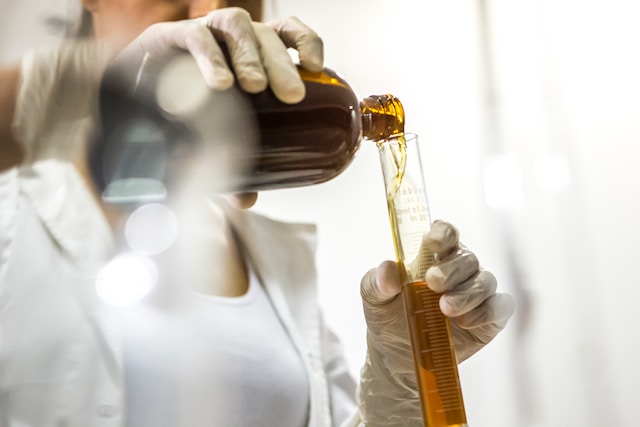

Brazilian health agency regulates use of foreign regulatory authorities’ assessments
New Anvisa regulations seek to streamline analysis of products previously approved by equivalent authorities in other countries
Subjects
On March 24, 2024, the Brazilian Health Regulatory Agency (Anvisa) published two regulations concerning the use of assessments carried out by Equivalent Foreign Regulatory Authorities (AREEs) – Instruction No. 289/2024 and Instruction No. 290/2024.
These regulations establish a streamlined analysis process for products that AREEs have previously approved in their respective countries. The analysis is conducted upon the submission of all documentation Anvisa requires, including evidence the products are equivalent to those approved by the AREE(s) in question.
Instruction No. 289/2024 specifically addresses optimized procedures for drugs, biological products, vaccines, and the Pharmaceutical Inputs Compliance Letter (Cadifa), while Instruction No. 290/2024 covers the registration of medical devices.
Background
In the wake of Public Consultation No. 1,039/2021, Anvisa issued Resolution No. 741 in August 2022, establishing general requirements for AREE assessments. This resolution mandated that such assessments would be subject to specific regulations for different health surveillance procedures and product categories.
Subsequently, Anvisa issued Resolution No. 750/2022 (no longer in effect), establishing temporary streamlined processes for using AREE assessments in relation to the registration and post-registration of medications, biological products (and their inputs), as well as the Cadifa. This regulation remained effective for 180 days from the date the resolution was issued.
Given the temporary nature of Resolution No. 750/2022, Anvisa then began preparing definitive regulations on this matter, resulting in Instruction No. 289 and Instruction No. 290.
Drugs, biological products, vaccines, and Cadifa (Instruction No. 289/2024)
Drugs, active pharmaceutical ingredients (APIs), vaccines, or biological products must first be approved by the selected AREE for Anvisa to assess them via the streamlined procedure.
Foreign institutions must also meet specific requirements to be designated as AREEs, including:
- They conduct pre-market and post-market regulatory activities consistent with those of Anvisa;
- They have adopted international norms and standards equivalent to those currently endorsed by Anvisa – particularly those established by the International Council for Harmonization of Technical Requirements for Pharmaceuticals for Human Use (ICH) and the World Health Organization (WHO);
- They must not be restricted from submitting or permitting the submission of reports and documents and reports that Instruction No. 289 requires for the streamlined assessment process.
Ultimately, Anvisa’s Collegiate Board (DICOL) has the power to determine whether a foreign authority will be designated as an AREE. The following authorities have been approved to date:
| Applicable to drugs, vaccines, and biological products | Applicable to IPAs |
| World Health Organization (WHO) | World Health Organization (WHO) |
| European Medicines Agency (EMA) | European Directorate for the Quality of Medicines & HealthCare (EDQM) |
| Health Canada | |
| Swissmedic | |
| Medicines and Healthcare products Regulatory Agency (MHRA– United Kingdom) | |
| US Food and Drug Administration (FDA) | |
| Australian Therapeutic Goods Administration (TGA) |
Requests for Anvisa to assess products via the streamlined process must be submitted either via a specific addendum or separately from the request to assess the product itself. Certain information and documentation established in Instruction No. 289 must also be attached to the request, such as:
- Instructional documentation that the AREE issued in assessing and approving the product;
- Proof of the AREE’s approval of the product, which must be valid at the time of the request; and
- Checklists that are available in Instruction No. 289/2024.
The streamlined analysis process may be applied on a partial basis when the instructional documentation submitted is:
- Sufficient for Anvisa to evaluate one or more parts of the regularization dossier; yet
- Insufficient for Anvisa to conduct a comprehensive analysis of the drug, API, vaccine, or biological product.
Moreover, the use of the streamlined analysis procedure does not preclude the agency from reassessing the submission via its standard process at any time.
Medical Devices (Instruction No. 290/2024)
Medical devices must have been approved by at least one of the AREEs contemplated in Instruction No. 290 in order for Anvisa to assess them via its streamlined process. To date, the following authorities and their respective registration or authorization approvals are considered:
|
Medical Devices |
|
| Foreign Authority | Proof of Registration / Authorization |
| Australian Therapeutic Goods Administration (TGA) | Australian Register of Therapeutic Goods (ARTG) |
| Health Canada (HC) | Medical Device Licence |
| US Food and Drug Administration (US FDA) | Clearance, Premarket Approval (PMA) |
| Japan Ministry of Health, Labour and Welfare (MHLW) | Pre-market approval (Shonin) |
The supporting documentation for AREE-issued registration or authorization approvals must pertain to a medical device essentially identical to the one submitted for analysis in Brazil. It must also indicate its use/intended use and its manufacturers. However, Anvisa’s streamlined analysis process cannot be used to assess a medical device that an AREE approved via a similar streamlined process.
It is also necessary to provide supplementary documentation, such as valid instructions for using the medical device adopted within the AREE’s jurisdiction. A sworn translation must accompany these instructions if the original versions are not written in Portuguese, English, or Spanish.
As stipulated in Instruction No. 289/2024, Anvisa still has the option to use its standard process to analyze the submitted documents by way of examining the instructive documentation issued by the AREE for medical devices.
For more information on this topic, please contact Mattos Filho’s Life Sciences & Healthcare practice area.



